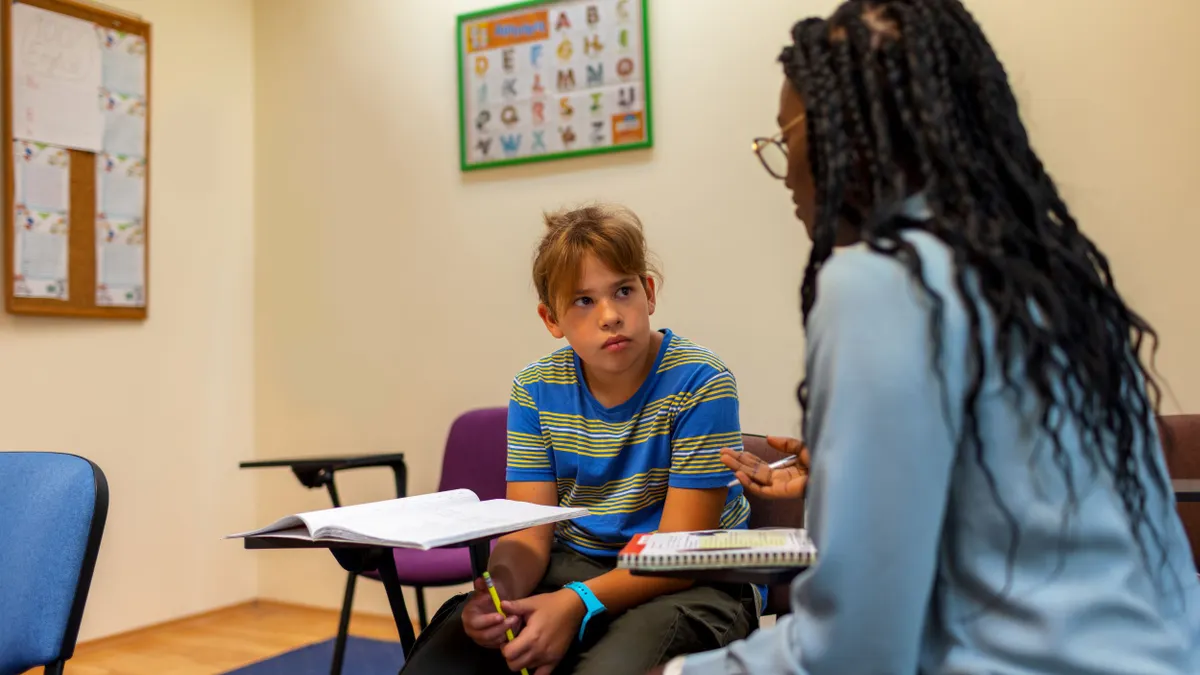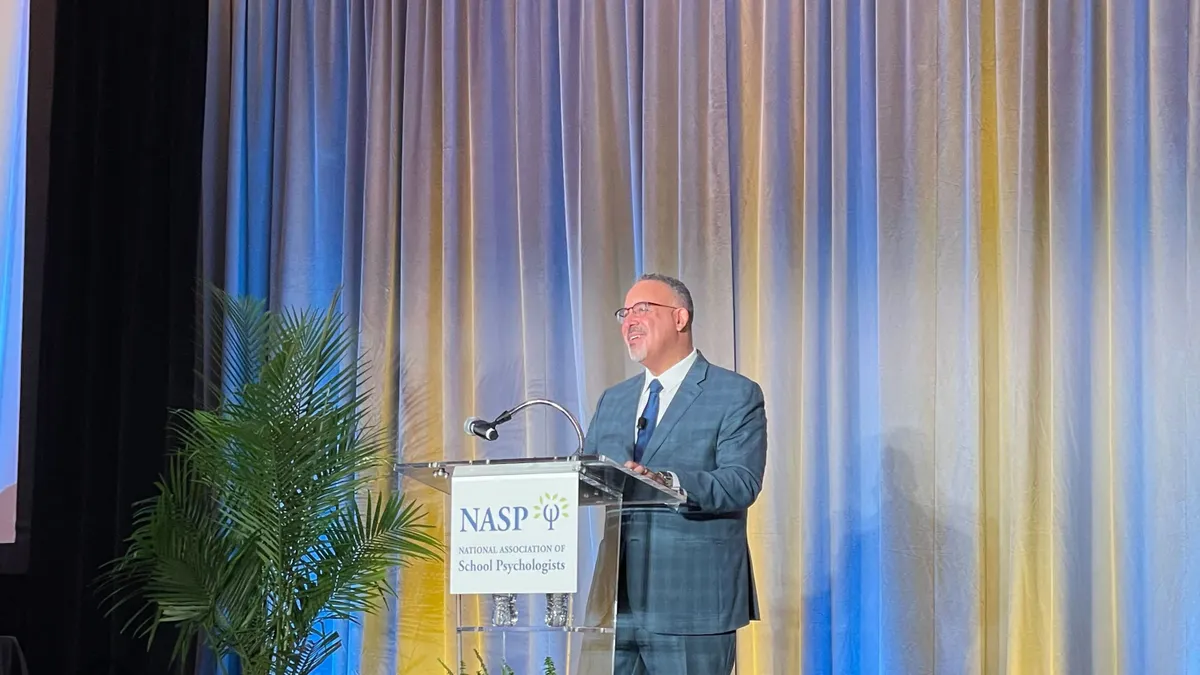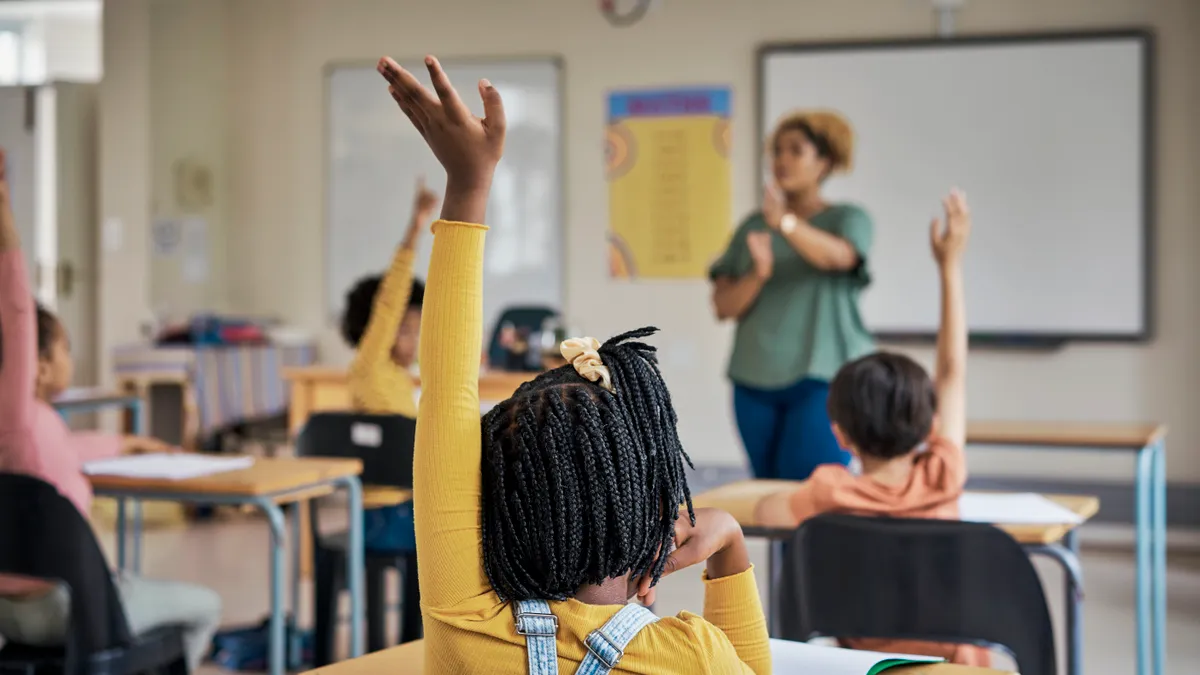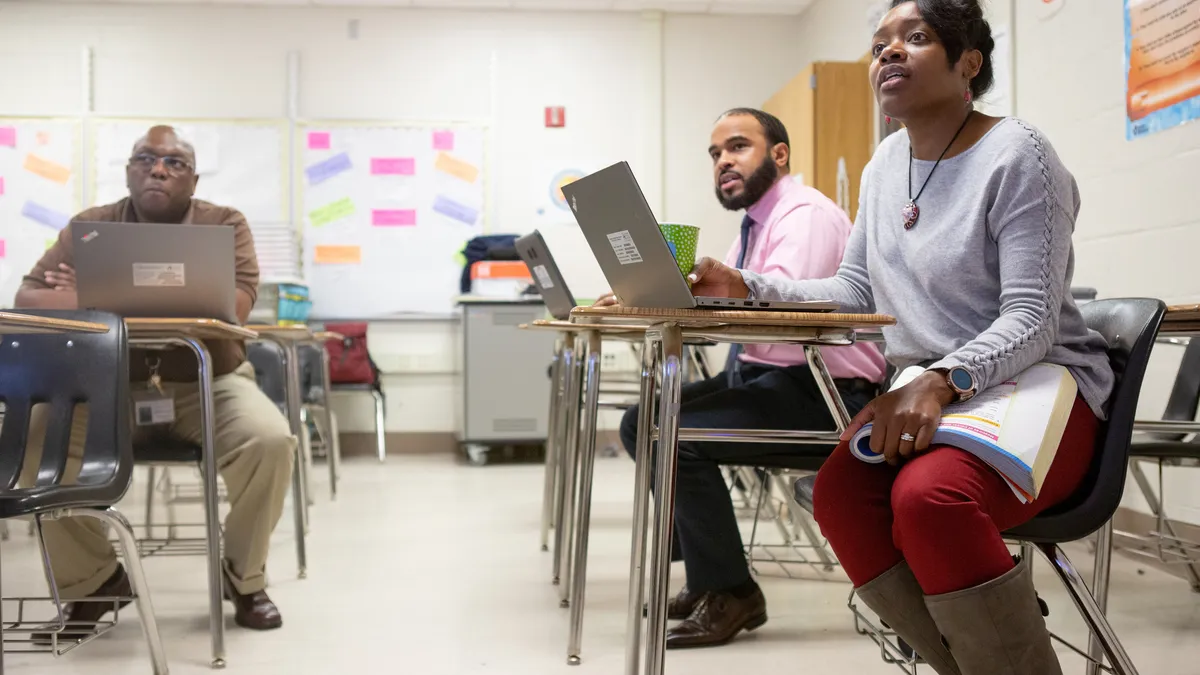A high school student accidentally shoots and kills his cousin. A 4th grader dies by suicide. A high school counselor has a severe mental health breakdown requiring police intervention.
These are all mental health crises that districts from the Southwest Arkansas Education Cooperative have grappled with in recent years in their rural school communities, said Phoebe Bailey, the cooperative’s director.
But through a five-year $4 million federal grant to fund a team of eight full-time, licensed mental health professionals to work with SWAEC’s nine districts, Bailey said, the education cooperative was able to help students navigate and process the complicated emotions tied with those traumatic events.
Teachers and families gained access to telehealth services thanks to those same funds. Parents even brought their children directly to SWAEC’s office asking for help to address their children’s mental health needs, she said.
That federal grant “was one of the best things” ever done for the district, Bailey said, but “it’s also one of the things that can break your heart the quickest.”
Since the U.S. Department of Education discontinued the remainder of that grant — among millions awarded to hundreds of other districts to assist with mental health programs and staffing — Bailey said that feeling of heartbreak resonates even more.
The Education Department confirmed to K-12 Dive on Friday that it will not renew $1 billion in grants that were initially awarded to districts nationwide to improve students’ well-being by placing more mental health professionals in schools. In SWAEC’s case, it will no longer receive $1,765,882 for the last two years of its total $4 million grant, Bailey said.
The pullback from the federal grants comes as schools nationwide work to address and recover from the lingering student mental health crisis that the COVID-19 pandemic exacerbated.
Though the department did not specifically name the grants impacted, the severed funds appeared to stem from the School-Based Mental Health Services Grant Program and the Mental Health Service Professional Demonstration Grant Program, based on statements from organizations like Sandy Hook Promise.
Each grant program received an influx of $500 million through the Bipartisan Safer Communities Act, which was enacted in 2022 a month after 19 students and two teachers were killed in a mass shooting at Robb Elementary School in Uvalde, Texas.
Districts who received a notice from the department were told their awards would end early, “effective at the end of your current grant budget period.”
The Education Department’s notice informed recipients that the federal government would no longer continue funding their programs, because they "conflict” with the Trump administration’s priorities and policy preferences. The notice also alleged the programs violate federal civil rights law, “undermine the well-being of students,” and “constitute an inappropriate use of federal funds.”
In a statement to K-12 Dive, the department cited examples from grant applications that included diversity goals for hiring counselors or training for therapists “to focus on racial stress and trauma.”
“Under the deeply flawed priorities of the Biden Administration, grant recipients used the funding to implement race-based actions like recruiting quotas in ways that have nothing to do with mental health and could hurt the very students the grants are supposed to help,” said Madi Biedermann, the department’s deputy assistant secretary for communications, in an emailed statement Friday. “We owe it to American families to ensure that tax-payer dollars are supporting evidence-based practices that are truly focused on improving students’ mental health.”
Bailey said she was “very surprised” to read the department’s reasoning in regard to the grants potentially violating federal civil rights laws, “because that’s not even remotely [their] purpose.”
Just because there was a small piece in the grants asking applicants to prioritize a diverse workforce, it does not mean the programs should face sweeping cuts, Bailey said. “It wasn’t just a policy from the previous administration, it was a bipartisan bill passed by Republicans and Democrats that supported kids.”
Without these federal grant dollars, students who are experiencing trauma, anxiety and stress will no longer have the professional support they need, said Rep. Rosa DeLauro, D-Conn., in a Wednesday statement.
“Far too many students in this country have little to no access to mental health services. The answer to this problem is not to take away this funding,” DeLauro, ranking member of the House Labor, Health and Human Services, and Education Appropriations Subcommittee, said. “By canceling these grants, Secretary McMahon is taking a wrecking ball to several years of bipartisan funding agreements and leaving millions of students without the mental health support they need at school.”
Mental health resources are a key component for school violence prevention efforts, said Michael Bennett, superintendent of Greenville Central School District in New York. Bennett was a former assistant principal at Columbia High School in East Greenbush, New York, during a 2004 shooting in which he was injured.
As a member of the National Association of Secondary School Principals’ Principal Recovery Network, Bennett said the network supported the influx of funds from the Bipartisan Safer Communities Act to address both bolstering student mental health and preventing school violence.
While districts have increasingly hardened school buildings and security measures, Bennett said more resources are still needed for student mental health support. In a lot of cases, especially those involving guns, violence in and around schools often comes from a student with mental health needs, he said.
The department’s sudden decision to pull related funds puts “those services in jeopardy of going away if there’s no plan in place to fund them some other way,” Bennett said. “I’m afraid of what happens when some of these programs are taken away in regards to our kids’ mental health or kids’ safety.”
Districts have 30 days to appeal the department’s decision to no longer continue funding their mental health programs, according to the agency’s notice.
While Bailey plans to go through the appeals process for SWAEC, she’s also preparing to dig into the cooperative’s budget to see if there’s a way to continue its mental health program for at least another full school year.
“We’re going to do our best to keep it going,” Bailey said. “I just know that before I stand in front of everybody and say it’s going away, I’m going to give it everything I can to try to keep it going as long as I can.”




















